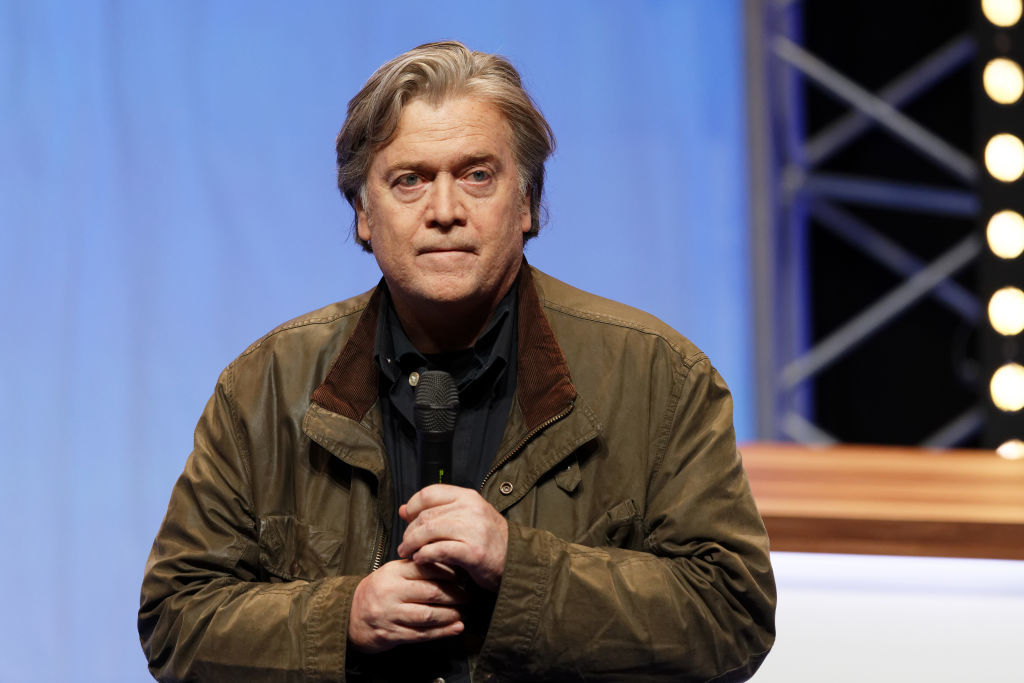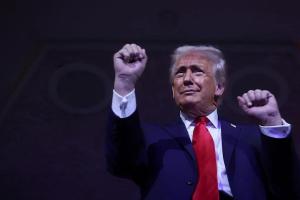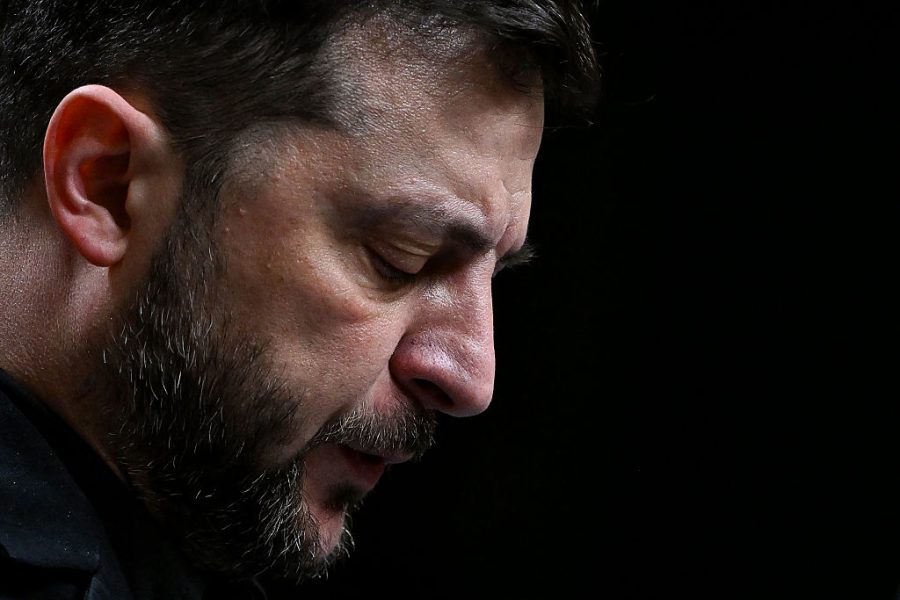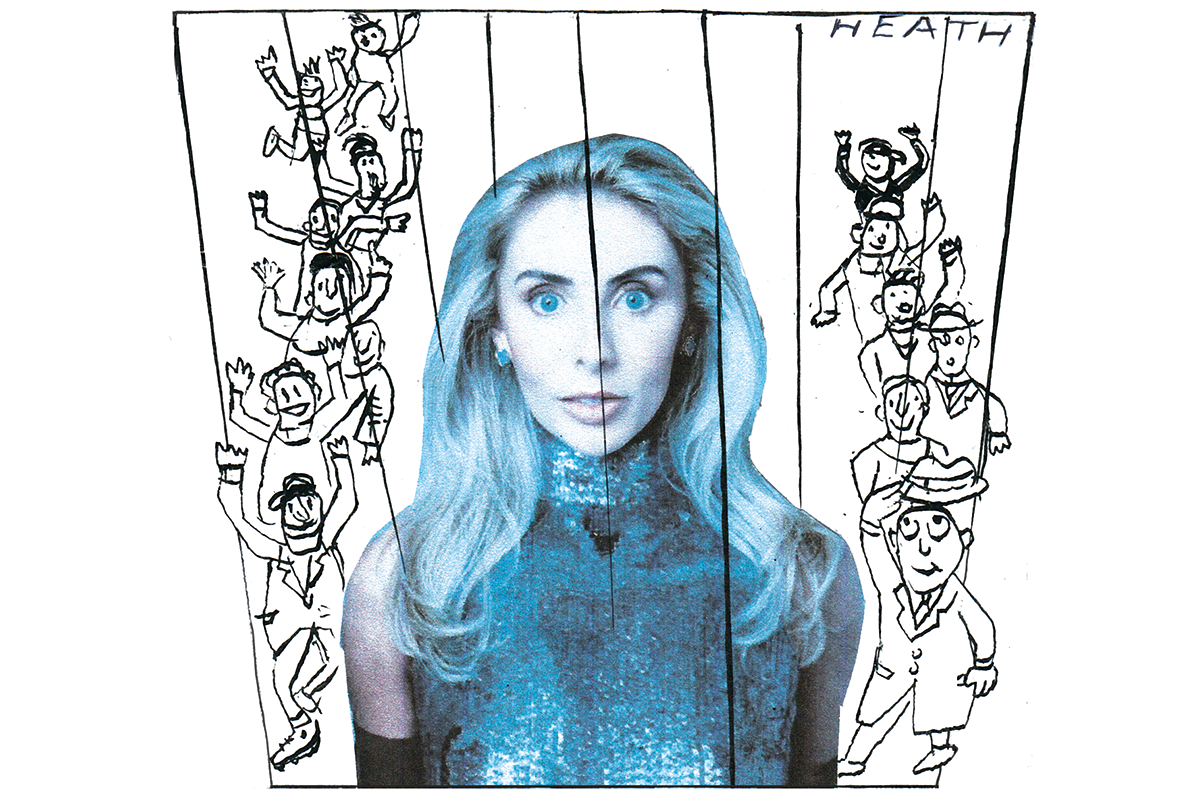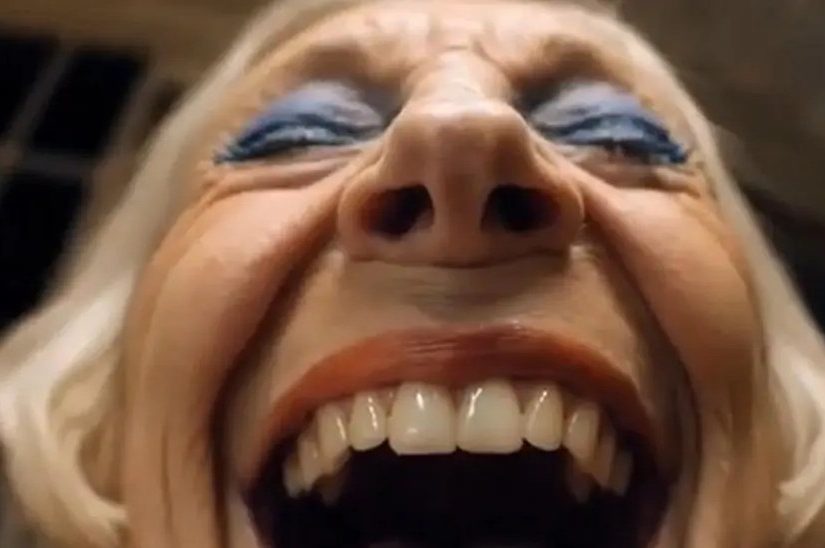Yesterday, in central London, I spent an interesting hour with Stephen K. Bannon, discussing the fall out from President Trump’s Helsinki summit. We recorded a podcast which you can listen to here:
I asked Bannon whether he felt the media were right to be working themselves into such a lather over Trump’s apparent siding with Russia over American intelligence services over the 2016 election – this was before the Commander-in-Chief’s peculiar ‘double negative’ volte-face in the afternoon.
In reply, Bannon reiterated the now fairly standard – nonetheless fair – point that the media conflates Russian meddling with Russian collusion.
‘Should the president have backed up his intelligence services? Yes, absolutely,’ he said. ‘Collusion? They found nothing.’
But what he really wanted to discuss what how the obsession with Russia was a giant red herring from the bigger looming threat of China’s economic dominance. He pointed to Australia as ‘an object lesson to Great Britain and the United States’ for what happens to a country when it lets itself be dominated by China’s economic might.
He said: ‘The people in Australia thought they were playing by the rules, and what they found out ten years later is that the Chinese had gone in and bought minority stakes in companies and bought natural resource companies – next thing you know, with the investments they made in real estate and real assets et cetera, they took control of companies. Next thing you know they’ve got political power – they’re being politicians. And now Australia is in a situation of creeping control by an independent Republic like China – it’s dangerous. That’s happening in the United States and it’s happening in Britain.’
Bannon, as a naval officer who served in the Cold War at sea, asserts that the hatred for Russia doesn’t make any sense. At the height of the Cold War, he said, ‘even then, we didn’t hate the Soviet Union. They were an enemy. They were bad guys; it had to be taken down. But I never saw a virulent hatred. When I came to Washington, I said, “I can’t figure out the raw hatred for Russia.’
Putin is running a criminal kleptocracy, Bannon admitted, but that was not why what he calls the ‘snowflake left’ despises Russia’s leader: ‘he’s a nationalist, he’s against the Euro project, and he’s embraced the Orthodox Church. He’s looked at as a foundation of the Judeo-Christian west.’
But Russia, he argued, is distraction from the great evisceration of America, Britain and Europe’s power, which is down to the ‘axis of the 21st century’– China, Persia, Turkey, or ‘the Asian landmass’ and China’s one belt one road.
Is it too late for the west, though? Has China’s economic power now grown so great, and our economies so weak, that the Chinese takeover is inevitable?
‘Up until Donald Trump came on the scene, we were told by everybody in the city of London and on Wall Street that the inexorable rise of China is the second law of thermodynamics. It is the physics of the universe.’
But Trump, he insisted, through the threat of tariffs, and the aggressive limiting of Chinese investments in western countries, can reverse the advance of China’s economic advance: ‘If we were to go full on, and pull the trigger on that, you bring ‘em to their knees.’
What are the chances of America actually doing that, even with Trump? ‘Low,’ he says, ‘but the stakes are too great not to try.
‘We are going through a dark valley. People say I’m apocalyptic – I just look at facts, and I’ve been saying this for years and now it’s all coming to fruition. That’s why with Russia, the kleptocracy are not good guys, but eventually, we have to end the Cold War and we have to bring Russia into some sort of alliance or rapprochement with the west.’
If the west allows Russia to partner ‘with this [China-led] axis, the 21st century will be quite different.’
Anyway, have a listen. He’s a hard man to argue with.



